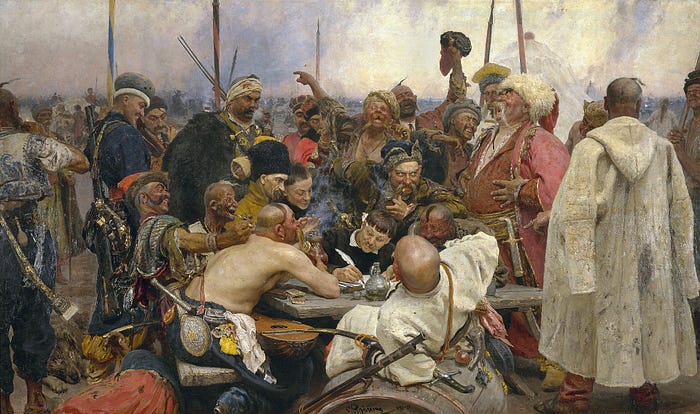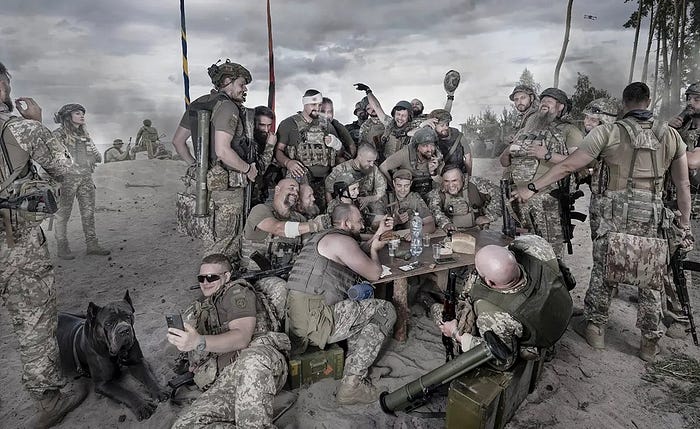In the dark winter months of December 1944, the German army laid siege to the provincial Belgian town of Bastogne — defending the town were American paratroopers from the famed 101st Airborne Division, my old unit. They were surrounded.
On December 22, two German officers approached the American perimeter and demanded to speak with the U.S. commanding officer.
Their mission was to hand a two-page typed letter offering favorable terms to the Americans if U.S. forces surrendered. "After all," the letter read, "the only possibility to save the encircled U.S.A troops from total annihilation is the honorable surrender of the encircled town."
At the time, the 101st Airborne was led by Brigadier General Anthony McAuliffe.
When he was handed the German's demand letter, he skimmed it, and then asked his aides, "They want to surrender?"
They told him, "No sir, they want us to surrender."
At which point, Gen. McAuliffe composed a one-word reply to the Germans: "Nuts!"
"Nuts" might not seem too offensive to us today, but in the 1940s, it was the equivalent of saying "F*ck off!" In fact, the word "nuts" was forbidden from appearing in the scripts of Hollywood movies of the time.
Ukraine showed this same defiance during the first days of the Russian invasion in the famous Snake Island incident. A Russian warship identified itself and ordered the Ukrainian soldiers stationed on the island to surrender.
A border guard later identified as Roman Hrybov replied, "Русский военный корабль, иди на хуй", or in English, "Russian warship, go f*ck yourself."
Hrybov would give the Russians the middle finger again, this time by appearing in a recreation of a 19th-century masterpiece.
The 1880 painting in question was created by Kharkiv-born artist Ilya Repin and is called the "Reply of the Zaporozhian Cossacks." The painting depicts a supposedly historical tableau, set in 1676, and is based on the legend of Cossacks sending an insulting reply to an ultimatum from the Sultan of the Ottoman Empire, Mehmed IV.
The Cossacks, led by Ivan Sirko, wrote a letter replete with insults and profanities. The painting exhibits the Cossacks' pleasure in striving to come up with ever more vulgarities for the Sultan.

Fast forward to today.
Artist Emeric Lhuisset used Ukrainian soldiers, including Snake Island hero Roman Hrybov, to recreate the 19th-century painting, but instead of muskets and shashka sabers, the recreated image highlights troops from the 112th Territorial Defense Brigade.
Lhuisset's tableau is entitled "From far away, I hear the Cossacks' reply."

In an interview, Lhuisset said that the image includes real weapons and was taken along the Dnipro River.
As for the original painting, two versions exist — the first is sitting in a museum in St. Petersburg, Russia. The second piece, created by Repin in 1889, was the artist's attempt to create a version that was more "historically authentic."
That second piece was stored at the Kharkiv Art Museum until the region came under heavy Russian fire in March of 2022. Ukrainian museum staff moved many of their precious artworks, including Repin's second version, to an undisclosed safe location in Western Ukraine.
Lhuisset's recreation shows modern Ukrainian soldiers composing vulgar messages to Putin's ongoing demands for surrender, much the way McAuliffe replied to the Germans at Bastogne and Repin's Cossacks replied to the Sultan.
Stories like this show the unwavering strength of the Ukrainian spirit and illustrate why Russia is destined to lose this war.
Morale wins wars.
You can follow Emeric Lhuisset on Instagram to support his important work.
Слава Україні
Author's note: Many of my subscribers are interested in the Ukraine War. I'm clearly passionate about that topic and will continue to post about Ukraine frequently. However, I would like to branch out a little. In the interest of making New Year's Resolutions, here's my ambitious new posting schedule to kick off 2024:
Monday: Ukraine War analysis and international relations
Tuesday: Other interesting topics like politics, history, and book reviews
Wednesday: Ukraine War analysis and international relations
Thursday: Other interesting topics like fatherhood, public speaking, and climate change
Friday: Ukraine War analysis and international relations
